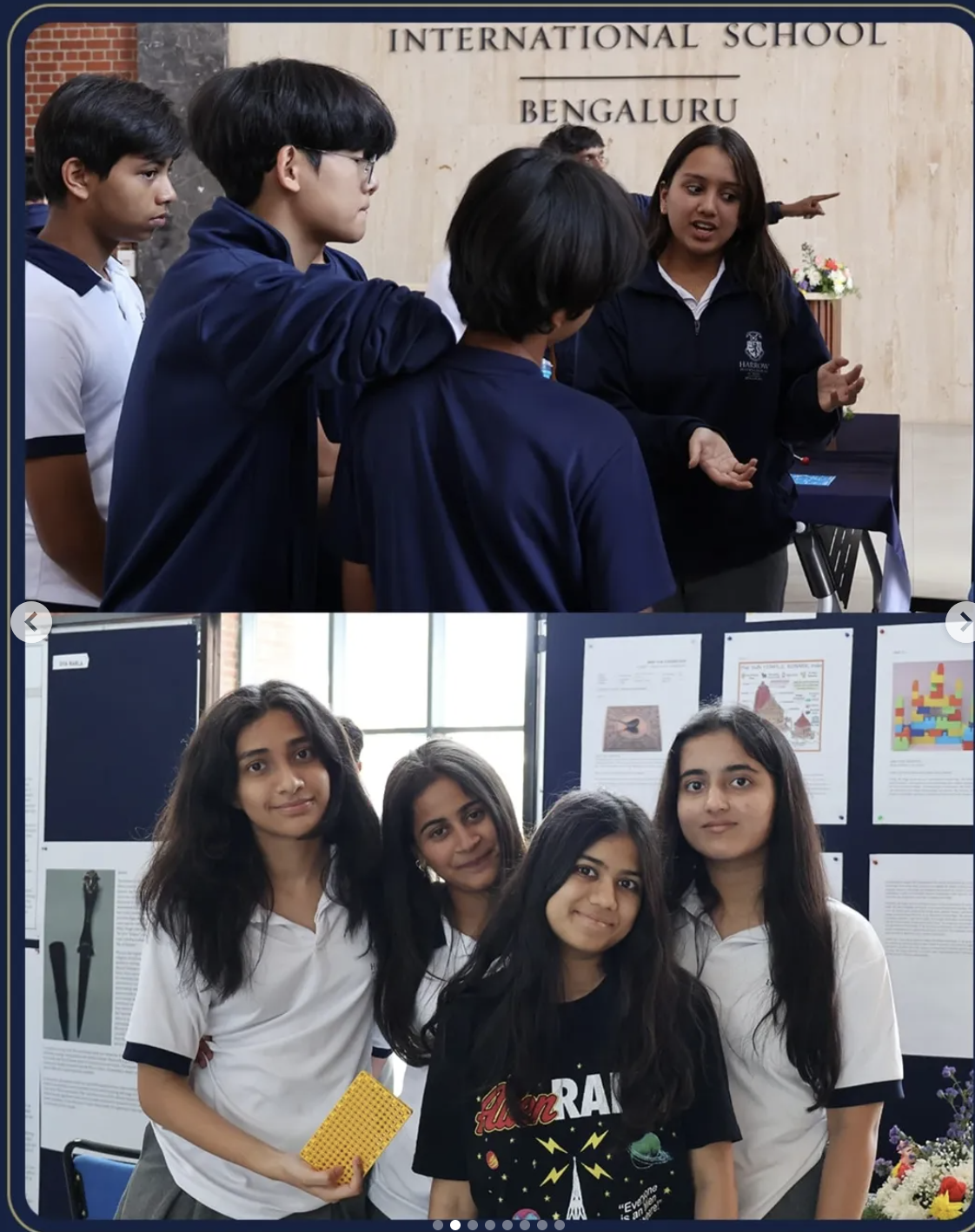Best international Boarding Schools In Bangalore

Strong 8k brings an ultra-HD IPTV experience to your living room and your pocket.
A Journey into the Nature of Knowledge: Our Inaugural IBDP Theory of Knowledge (TOK) Exhibition
The academic landscape of our school witnessed a remarkable moment recently, as our founding cohort of International Baccalaureate Diploma Programme (IBDP) students hosted their very first Theory of Knowledge (TOK) Exhibition. As one of the core components of the IB Diploma, the TOK course encourages students to engage deeply with questions surrounding the origin, nature, and limits of human knowledge. The exhibition was not only an academic milestone but also a profound reflection of our learners’ intellectual maturity, creativity, and curiosity.
At its core, TOK challenges students to ask bold, philosophical questions like “How do we know what we claim to know?” and “What shapes our understanding of the truth?” It is a subject designed not to provide answers but to help students navigate the complexities of knowledge in a rapidly evolving world. The TOK Exhibition is a practical manifestation of this inquiry-driven approach. It asks students to connect abstract concepts with real-world experiences by selecting three personally meaningful objects that symbolically respond to a chosen knowledge question from the IB’s prescribed list.
Each student, through their curated objects, offered a unique perspective on one of these prompts. The exhibition became a vibrant tapestry of ideas—where scientific tools, cultural artifacts, photographs, books, family heirlooms, and digital media came together to spark meaningful dialogue. These objects were not chosen at random; they were selected with deep thought, each carrying a story and serving as a gateway to a broader exploration of knowledge.
For instance, one student displayed a traditional musical instrument passed down through generations in their family. Through this object, they explored the prompt: “What role does tradition play in the construction of knowledge?” They discussed how music, as a cultural expression, carries generational knowledge that is both preserved and reinterpreted over time. Another student presented a scientific calculator alongside a childhood storybook, juxtaposing analytical knowledge with emotional and narrative knowledge, under the prompt: “Are some types of knowledge more useful than others?” The resulting discussion was both introspective and thought-provoking.
The exhibition venue was arranged as an interactive gallery, with each student positioned beside their display board, ready to engage with visitors. What stood out was the clarity and confidence with which the students explained their reasoning. They did not simply describe their objects but invited the audience to think critically and reflect on how these items represented different ways of knowing—emotion, language, reason, and sense perception.
A particularly heartening aspect of the exhibition was the diverse audience it attracted. From curious Grade 7 students asking big questions with fresh eyes, to seasoned teachers and school leaders bringing nuanced interpretations, the event created an atmosphere of genuine dialogue across age groups. Younger students, many of whom had never encountered TOK before, expressed awe at how everyday items could spark such deep philosophical exploration. For them, it served as a preview of the intellectual adventures that await in the senior school years.
Moreover, the event highlighted a crucial element of IB learning: the integration of personal and academic growth. TOK is not a subject with fixed right or wrong answers; it is a space where students learn to embrace uncertainty, evaluate perspectives, and express their evolving understanding with authenticity. In this exhibition, our students demonstrated their ability to weave personal insight with theoretical depth—a hallmark of the IB learner profile.
Behind the scenes, the exhibition was the culmination of weeks of preparation. Students engaged in brainstorming, drafting, feedback sessions, and revisions. They refined their reflections through rigorous peer reviews and teacher guidance, learning not just how to present, but how to listen, think, and revise. The result was a polished, articulate, and meaningful showcase of learning.
It was also an opportunity for students to step into the role of teachers, as they guided their peers and visitors through their exhibits. In doing so, they practiced one of the most essential skills of the 21st century—communicating complex ideas clearly and engagingly to a varied audience.
The success of the inaugural TOK Exhibition marks an exciting chapter for our IBDP programme. It reflects the strength of our academic foundation and our commitment to fostering globally minded, reflective, and principled learners. Our students proved that they are not just absorbing knowledge, but actively questioning and shaping it—an essential trait for future leaders and thinkers.
As we reflect on this inspiring event, we extend our heartfelt congratulations to our IBDP students for their dedication and courage to question, explore, and share. Their work reminds us that knowledge is not static—it is dynamic, shaped by context, perspective, and purpose. We look forward to many more such initiatives where learning comes alive, and ideas take center stage.
Note: IndiBlogHub features both user-submitted and editorial content. We do not verify third-party contributions. Read our Disclaimer and Privacy Policyfor details.


